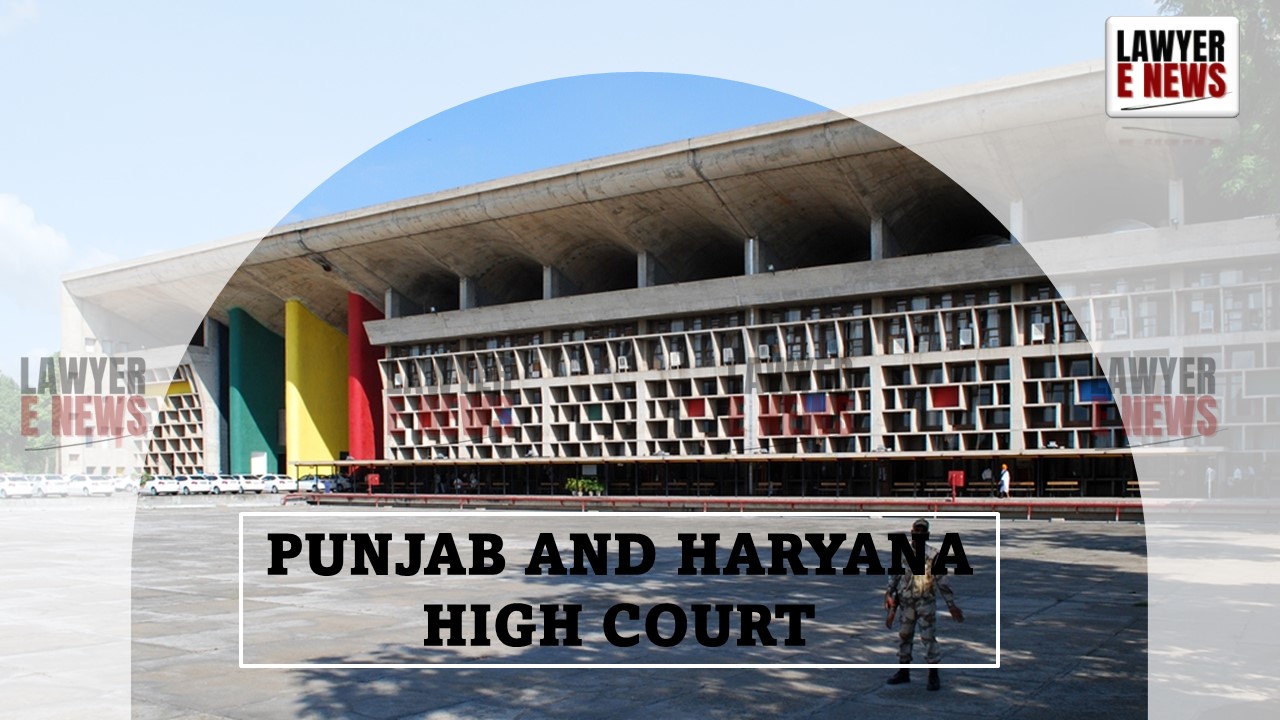-
by Admin
15 February 2026 5:35 AM



On September 6, 2024, the Punjab and Haryana High Court dismissed a writ petition filed by Surender Kumar challenging his dismissal from service, following a Labour Court ruling. The petitioner, a former employee, sought to set aside the Labour Court's decision which upheld his termination for gross misconduct, including physical assault on a superior. The court found no jurisdictional error in the Labour Court’s award and ruled that the penalty of dismissal was proportionate to the offense.
Surender Kumar joined his employer in 1996 but was terminated in September 2000 following two incidents of gross misconduct. The first involved physical violence against a superior officer, where he threw a paperweight at his supervisor. The second incident occurred a month later, where he attacked a co-worker. These acts led to his dismissal after a domestic inquiry found him guilty of misconduct.
Kumar approached the Labour Court, which, in its award dated April 13, 2015, ruled in favor of the employer, finding that the dismissal was justified. The court held that the inquiry had been conducted fairly, and Kumar's actions constituted gross misconduct, leading to a total loss of confidence by the employer.
The petitioner challenged the validity of the domestic inquiry, alleging that it was flawed due to procedural lapses, such as delayed service of charge sheets and lack of an FIR regarding the incidents. He further sought a writ of certiorari under Articles 226/227 of the Constitution, asking the High Court to set aside both the inquiry findings and the Labour Court’s award.
Justice Jagmohan Bansal, while delivering the judgment, emphasized that the scope of a writ of certiorari is limited to correcting jurisdictional errors, and the High Court is not an appellate authority to re-examine factual findings of the Labour Court. The court quoted rulings from the Supreme Court, including Syed Yakoob vs. K.S. Radhakrishnan (1964), which held that writ courts cannot review evidence unless there is a clear error of law or jurisdiction.
The High Court found that the Labour Court had correctly evaluated the evidence and followed due procedure. There was no evidence of jurisdictional error or violation of natural justice. The court ruled that the petitioner’s actions—throwing a paperweight at a superior and attacking a co-worker—constituted serious misconduct, justifying his dismissal. Furthermore, the court held that the penalty of termination was not disproportionate to the gravity of the offenses.
Limited Scope of Writ Jurisdiction: The court reiterated that in writ petitions under Article 226, the High Court does not act as an appellate authority to re-evaluate the factual findings of lower tribunals or courts. It can only intervene if there is a clear jurisdictional error or violation of natural justice.
Fair Inquiry and Proportional Penalty: The court upheld the Labour Court’s finding that the domestic inquiry was conducted fairly and in accordance with the prescribed procedures. The penalty of dismissal was deemed appropriate for the gravity of the misconduct.
Misconduct Leading to Loss of Confidence: The court supported the Labour Court’s conclusion that the petitioner’s actions led to a complete loss of trust by the employer, justifying his termination.
The High Court dismissed the writ petition, finding no jurisdictional error or procedural infirmity in the Labour Court’s decision. The dismissal of Surender Kumar for gross misconduct, including physical violence in the workplace, was upheld as a proportionate and justified response.
Date of Decision: September 6, 2024
Surender Kumar vs. Presiding Officer, Industrial Tribunal-cum-Labour Court-I, Gurgaon, and Another
